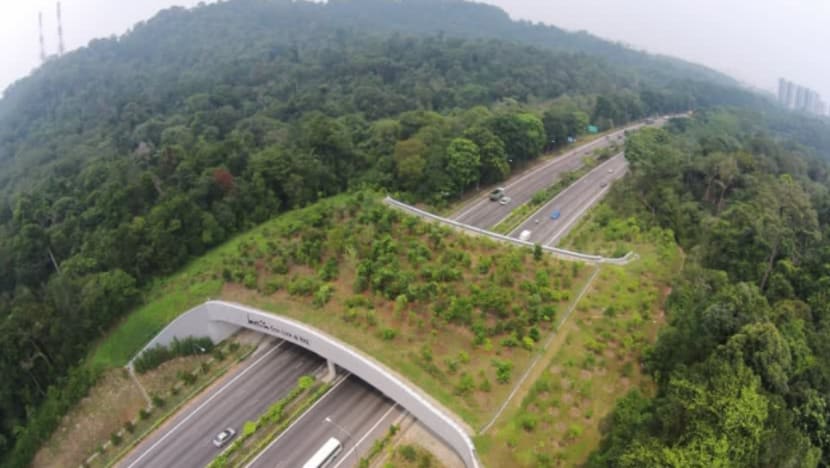Climate Conversations Podcast: Did we keep to our post-COVID promise of cleaner, greener cities?
It's a mixed bag when it comes to Southeast Asian cities trying to become greener. Singapore, host of this year's World Cities Summit, leads the way.
.jpg?itok=GRdWhhY7)
Hosts Jack Board and Liling Tan bring years of expertise covering climate change and sustainability to this weekly podcast. A one-stop shop for news, views and interviews.
Car-free cities, greener pockets and more sustainable homes for the underserved - these were some ideas for cities to transform for a climate challenged world. But have these promises come to fruition?
Jack Board and Liling Tan do their due diligence on old promises.
Jump to these key moments:
- 2:52 Extreme heat and turbulence
- 5:15 Are Southeast Asian cities better after COVID-19?
- 15:52 How Singapore tries to plan for a green and clean city

Here's an excerpt of the conversation:
Jack Board: Within Bangkok, more specifically, there there has been a much more concerted green agenda that I've noticed and we've reported about the governor here has often prioritised making the city cleaner and more functional.
And you can start to see some of those impacts slowly unfolding. We have cleaner canals for instance, there's less flooding of roads during the wet season, although that will be tested again over the next few months better access to public parks and green spaces.
My gripe is that still many of them are not friendly for dogs which is annoying for me taking my very active Labrador for a walk.
And more urban tree canopy as well. There's a massive new shopping centre right near my place. Just what Bangkok needs.
Liling Tan: Another shopping mall.
Jack: The one major initiative is to bury all those crazy tangles of overhead cables, I'm sure you've seen them when you've come to cities like Bangkok. An impossible knot of years of various cables. And then there was this backlash on social media about it. All these tourists saying, “Oh no, the iconic imagery of Bangkok will be lost forever, the city won't feel like it used to.” And then you have all these locals going, “Excuse me. This is an eyesore. It's getting in the way. It's blocking trees. It's a nightmare to live with.”
Liling: Yeah. You don't have to live here, we do.
Jack: Liling, how does Singapore plan for a green and clean city?
Liling: Looking at the bigger picture about Singapore’s sustainable urban development, a lot of the efforts that they're doing, they do strike a chord. Now it's redefining density by dispersing activity in the city centre closer to the outskirts by developing a second central business district, out further in the heartlands towards the west is called Jurong Lake District, and this is one example ...
I don't know if you've been to Singapore recently, Jack, we have several eco-links, ecological links, so that connects forested areas, green conservation areas that would otherwise be separated by highways. So that means pangolins, your Raffles’ banded langurs, they can cross these highways without becoming roadkill.













